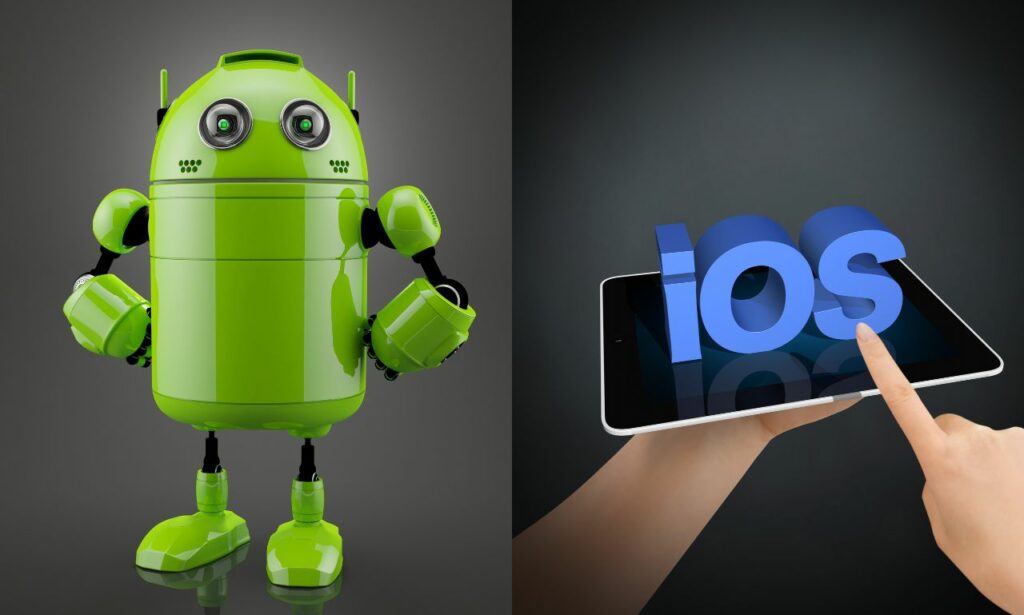Mobile applications are a crucial component to make any venture successful in today’s business landscape. With the increasing dominance of smartphones, having a well-designed and functional mobile app is a must-have for businesses looking to expand their reach and engage with their customers on the go.
However, choosing the right platform for your app can be a daunting task, especially when it comes to iOS and Android. In this blog post, we will explore the question of which platform is more business-friendly, iOS or Android.
We will analyze the advantages and disadvantages of each platform, and provide insights to help businesses make an informed decision when choosing between the two. If you are a business owner looking for iPhone app developer for hire in USA, this post will be especially useful for you. So, without further ado, let’s dive into the world of mobile app development!
Here is a brief comparison on broader terms. Read the points and decide for yourself which platform you want to develop your business application in.
Both Android and iOS offer a variety of apps that are useful for businesses, but there are some differences that might make one more business-friendly than the other.
Here are some factors to consider when comparing Android and iOS for business use:
- Security: Both Android and iOS have security features that make them suitable for business use. However, iOS has been traditionally considered more secure due to its closed-source nature, which makes it harder for malware to penetrate the system. iOS devices also have built-in security features such as Touch ID or Face ID, which add an extra layer of protection.
- App availability: Both platforms have a vast number of apps, but iOS has traditionally had a more extensive selection of business-specific apps. This is partly because iOS has been popular with businesses for a longer time than Android, and also because iOS developers tend to prioritize developing for the platform due to its high user engagement and revenue potential.
- Integration with other systems: Depending on the specific needs of a business, integration with other systems can be critical. iOS devices integrate well with other Apple products, such as Mac computers and Apple Watch, which can be beneficial for businesses that rely heavily on Apple technology. However, Android devices can integrate more easily with Google’s suite of apps, including Google Drive, Google Docs, and Google Calendar. Hire iOS developers and experts to get great iOS applications or get an Android developer if you prefer that.
- Customizability: Android devices are known for their customizability, which can be beneficial for businesses that want to customize the user interface to suit their needs. On the other hand, iOS devices have a more consistent user interface, which can be beneficial for businesses that want to maintain a unified brand image.
Based on these factors, it’s difficult to definitively say which platform is more business-friendly, as it ultimately depends on the specific needs of the business. However, iOS devices may be better suited for businesses that prioritize security and a wide selection of business-specific apps, while Android devices may be better suited for businesses that value customizability and integration with Google’s suite of apps.
Ecosystem iOS vs Android
Unless comparing for a specific task, it is very difficult to decide which platform is better or better for your business application. Choosing an ecosystem is completely different from choosing an application platform. Similarly choosing one ecosystem is different for consumers than developers and companies. For users, it is better to stick to the ecosystem you are currently in, because switching will cause many inconveniences. As for businesses, catering all users, Android and iOS is important. Both iOS coders and android developers from vteams are in demand. Of course, having a complete Apple ecosystem is required for iPhone app developer for hire.
Android vs iOS security
Security is the most important feature for any business app. It not only keeps the app secure, but customer’s data safe which allows them to have a sense of security. When you think clearly and in depth, the answer is not clear to which is the winner/
iOS’ security
- Apple has control over its ecosystem. Meaning, it tightly controls everything, from the hardware to software. Before publishing every app is closely screened and has to pass strict rules. Apple App Store itself, significantly lessens buggy and malicious apps reducing the risk.
- Legacy support is a great feature of iOS devices. Older iOS phones still get security updates and firmware updates years later. Meaning, your iPhone will run the latest software and have the latest security fixes thanks to iPhone app developers for hire.
Android’s device
- Slower upgrades, with each device having a specific Android version, each device is not running the latest version. Latest updates and fixes are only pushed to certain devices, even if more devices get the update, it’s late.
- Potential security has loopholes because the upgrade has to be pushed to a wide variety of devices. This causes higher security holes that go unchecked.
- Security issues are detected early and fixed quickly with upgrades and patch fixes.
- Google now has an OS-level security option for encryption on some devices.
Google making apps more secure with these steps:
- App permissions: individually apps have to take permissions for access they need, which can be revoked easily.
- Automatic updates: starting from Android Nougat apps can now be updated automatically in the background since.
Comparing a list of features and possibilities, depending on the business and your target audience, selection of the best platform should no longer be a problem. However, for businesses it is best to cater both audiences, i.e. Android and iOS.

